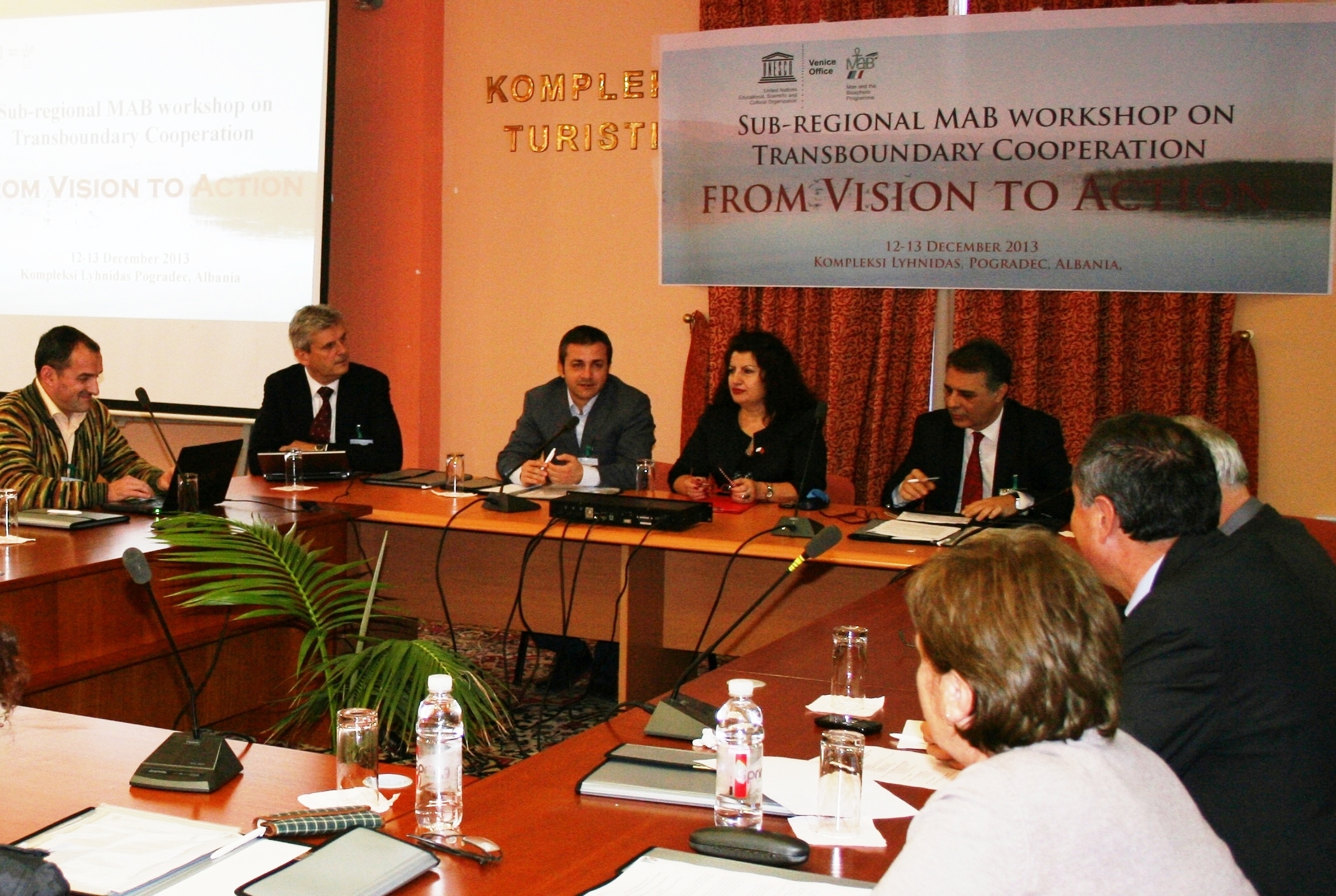
Sub-regional MAB workshop on Transboundary Cooperation: from Vision to Action
from Vision to Action
Processes of establishing Transboundary Biosphere Reserves (TBRs) in the region need to be facilitated as they are at a crucial moment where stakeholders require support and communities and authorities need clarification on their expected engagement, responsibilities and benefits in order to move forward with the designation processes and consequent implementation of key and interrelated functions of (T)BRs such as: environmental conservation, research on human-environment interactions, sustainable development (SD), cultural identity, and learning for a sustainable future in regional and global contexts.
This two day workshop is aimed to strengthen capacities of those actors who form the concerned MAB National Committees and those who shall ensure a proper in-situ management of the future TBR, as well as catalyse participatory processes to implement the key functions of the site while considering also a possible contribution to the implementation of the future strategy for the MAB programme and its World Network of Biosphere Reserves (WNBR) in the coming years.
Workshop’s objectives are to convene a meeting of key actors and experts as specified above enabling them to:
$1· share information, experience, lessons learnt and best practices in biosphere reserves management and transboundary processes to address current emerging challenges;
$1· strengthen transboundary cooperation with a particular emphasis on bordering territories where transboundary water and associated ecosystems can be affected by unsustainable development due to different management approaches;
$1· achieve a common understanding of institutional, legal and regulatory contexts in implementation of the key functions of the TBR and catalyse the drafting of a joint strategy and action plan.
High representatives of Albania (Mrs. Diana Bejko, Vice-Minister of Environment) and FYROM (Mr. Mr. Stevo TEMELKOVSKI, Ministry of Environment, Former Yugoslav Republic of Macedonia) clearly supported the process showing their commitment to the initiative of establishing the Ohrid-Prespa Lakes Watershed TBR and running it properly once officially designated.
The first day of the workshop was dedicated to the discussion among MAB NCs representatives of Albania, Bulgaria, Former Yugoslav Republic of Macedonia, about the status of periodic review process for existing BRs; Proposals of establishment of new (T)BRs; Functioning of the MAB NC; Relevant issues for national SD policy. The second day of the workshop is open to national and local stakeholders with a particular focus on the proposed TBRs of the Ohrid-Prespa Lakes Watershed, the Skadar/Shkodra Lake and the Osogovo Mountains.
The review of TBR processes from Ohrid Prespa Watershed, Osogovo Mountain and Skadar/Shkodra Lake provided useful examples on different approaches to TBR establishment. Lessons learned and ideas about the way forward were the core of the discussions among participants. The participant recognised that more efforts should be done on understanding and promoting the TBR concept as a tool that support sustainable development in the respect of nature. There is a need for more capacity building activities as well as use of existing successful public outreach materials on the concept of MAB and BR.
Mr. Philippe Pypaert, Responsible of the Environmental Programmes of the UNESCO Regional Bureau for Science and Culture in Europe (Venice, Italy), offered full support to the process of establishing TBR in the region.



